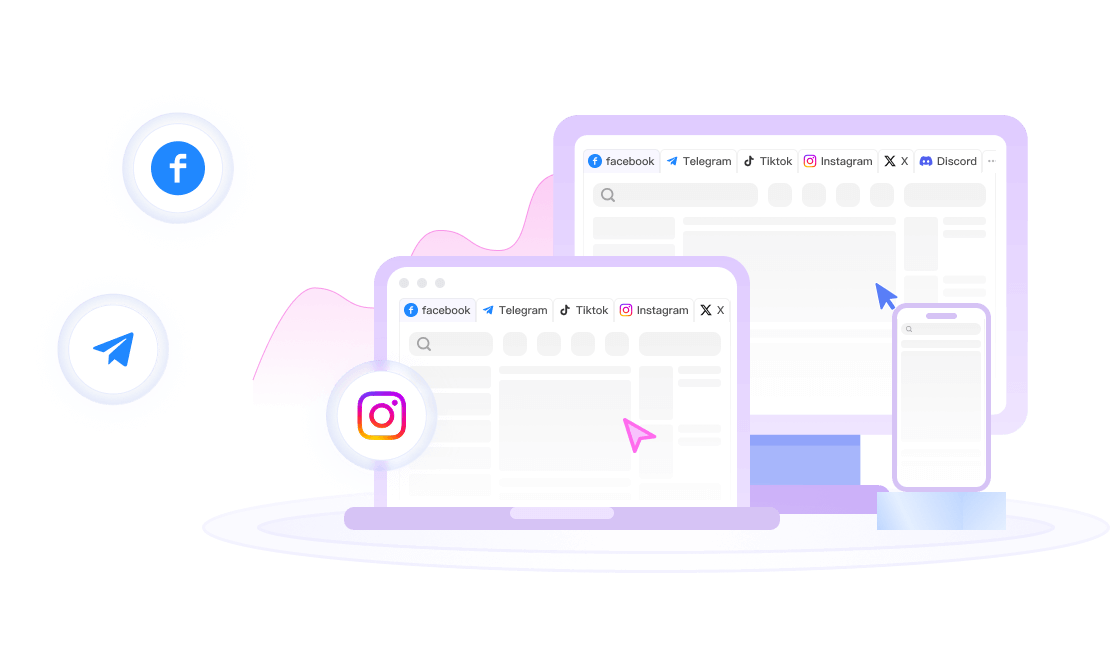10 Questions About ip.me: Understanding Your IP and Online Privacy
ip.me is a clean and powerful online tool that helps any user quickly understand the information they expose on the internet. From your IP address to your geographical location, how is this data obtained and used? This article will walk you through 10 common questions to give you a deeper understanding of ip.me and the related online privacy issues.
1. What is ip.me?
ip.me is a free online service that instantly displays your current public IP address, approximate geographical location (city, latitude, longitude), and your Internet Service Provider (ISP). It is also a composite query tool that supports looking up information for specific IP addresses or website domains.
2. Is the location information on ip.me accurate?
The location it provides is an approximation based on IP address databases, usually accurate to the city level, but it cannot pinpoint your exact street address. However, this is sufficient for websites and services to customize content or apply access restrictions based on your country or region.
3. Can I use ip.me to check someone else’s IP address or website information?
Yes. You can enter any IP address into the ip.me search bar to find its geographical location or enter a domain name to perform a Whois lookup and check DNS records. A Whois lookup can help you find information such as a website’s registrant, registrar, and registration date.
4. Why is it important to know my public IP address?
Your public IP address acts as your “digital ID card” on the internet. Websites, advertisers, and various online services use it to identify you, determine your geographical location, provide regional content, and even log your online activities. Knowing your IP is the first step to understanding your personal digital footprint.
5. How do websites use my IP address?
Websites primarily use IP addresses for geolocation. For example, streaming platforms determine your region based on your IP to offer different libraries of shows and movies. Advertisers use it for precise regional ad targeting. It is also used in cybersecurity to identify and block suspicious access sources.
6. Besides the IP address, what other information does my browser leak?
A browser leaks much more than just an IP address. It also exposes your User Agent, operating system, screen resolution, installed fonts, browser plugins, time zone, and more. When combined, this information can form a highly unique “browser fingerprint.” Even if you hide your IP, websites can still potentially identify you through this fingerprint.
7. What is the purpose of the VPN recommended on the ip.me website?
A VPN (Virtual Private Network) works by routing your internet traffic through a remote server. It assigns you a new IP address belonging to that server, thus hiding your real IP address and geographical location. A good VPN also encrypts your data, preventing it from being intercepted during transmission and thereby enhancing online security.
8. Is the recommended Proton VPN free?
Yes, Proton VPN offers a free version with no data limits, which is quite generous among VPN services. Of course, its paid version provides servers in more countries, faster connection speeds, and more advanced security features.
9. What is the difference between a VPN and a fingerprint browser (like FlashID)?
A VPN primarily addresses the issues of IP address exposure and data transmission security by changing your IP to hide your location. A fingerprint browser, such as FlashID, focuses on solving the deeper problem of “browser fingerprint” leakage. It creates isolated browsing environments and modifies or spoofs your browser fingerprint parameters to prevent websites from identifying and tracking you by means other than your IP. The two can be used together for more comprehensive privacy protection.
10. Is using ip.me free?
Yes, ip.me is a completely free service for IP and website information queries.
Go Beyond IP Masking with FlashID for True Anonymous Protection
Tools like ip.me clearly show how easily our IP address and geographical location can be obtained. While using a VPN is effective for hiding your IP, it is far from sufficient in today’s digital landscape. As we’ve discussed, websites are increasingly relying on “browser fingerprinting” technology for more precise user identification and tracking.
To achieve true anonymity, you need a more professional tool—the FlashID Fingerprint Browser.
FlashID is a leading anti-detect fingerprint browser designed to protect your digital identity. It works by creating multiple, completely independent, and clean browser environments. Each environment is configured with a unique and authentic set of browser fingerprint information (such as User Agent, fonts, Canvas, audio context, etc.), effectively preventing any website from associating your multiple identities or tracing back to your real information through fingerprint analysis.
Whether you need to manage multiple social media or e-commerce platform accounts, or you want to completely hide your tracks while conducting market research or information gathering, FlashID is the ultimate solution for protecting your digital identity and preventing environment detection.
You May Also Like
